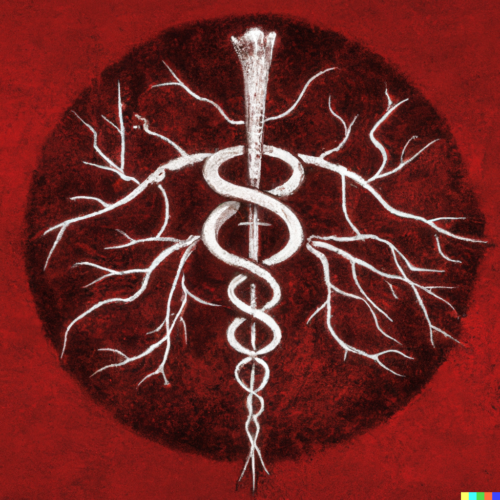Exploiting Iboga: The Dark Side of the Pharmaceutical Industry
In this article, we explore the troubling aspects of how the pharmaceutical industry exploits Iboga, including the scale of its exportation and the revenue generated, while overlooking the cultural heritage associated with this sacred plant.
A natural cure for addiction = a threat to the Pharmaceutical Industry:
Iboga, a sacred plant known for its remarkable healing properties, has gained recognition for its potential to combat addiction. This presents a unique challenge to the pharmaceutical industry, which rakes in billions from drugs like opioids that have contributed to the addiction crisis. Iboga’s ability to address addiction at its core, offering profound spiritual and psychological insights, poses a threat to the profit-driven model of pharmaceutical companies.
Iboga’s power lies in its holistic approach to addiction recovery. Unlike conventional pharmaceutical interventions that often focus solely on symptom management, Iboga addresses addiction on multiple levels—physical, emotional, and spiritual. It activates a transformative journey within individuals, allowing them to confront the underlying causes of their addiction, gain deep insights into their patterns and behaviors, and experience profound shifts in their perception and relationship with substances.
The pharmaceutical industry, heavily invested in the production and distribution of drugs like opioids, stands to lose significant revenue if Iboga’s potential as an addiction treatment becomes widely recognized. While opioids and other addictive substances generate massive profits, they also perpetuate a cycle of dependency, leading to devastating social and health consequences. Iboga, on the other hand, offers a natural and sustainable alternative, breaking the chains of addiction and empowering individuals to reclaim their lives.
Moreover, Iboga’s approach challenges the pharmaceutical industry’s reliance on long-term medication-based treatments. By facilitating intense introspection, emotional healing, and spiritual awakening, Iboga can provide individuals with the tools to overcome addiction without a lifetime dependence on pharmaceutical interventions. This shift towards sustainable and transformative solutions threatens the pharmaceutical industry’s recurring revenue streams and disrupts the status quo.
However, despite its potential, Iboga faces numerous hurdles on its path to mainstream acceptance. The pharmaceutical industry’s influence and vested interests, combined with regulatory barriers and limited research funding, contribute to the underutilization and even suppression of Iboga’s therapeutic potential. This suppression not only denies individuals access to a potentially life-changing treatment but also perpetuates the profitability of pharmaceutical companies at the expense of public health.
It is crucial to recognize the immense value of Iboga in addiction recovery and advocate for its integration into mainstream healthcare systems. By embracing Iboga’s natural healing potential and challenging the profit-driven approach of the pharmaceutical industry, we can offer individuals struggling with addiction a genuine opportunity for transformation and liberation.
Cultural Appropriation: Iboga holds deep spiritual and cultural significance within the Bwiti people of Central Africa, who have utilized it as a sacred plant medicine for centuries. However, the pharmaceutical industry’s extraction of active compounds from Iboga without acknowledging or respecting the cultural heritage surrounding it can be seen as a form of cultural appropriation, stripping away the wisdom and rituals that have been preserved through generations.
Scale of Exportation: The demand for Iboga by the pharmaceutical industry is significant. Large quantities of Iboga are exported from regions where it naturally grows, primarily in Gaboin. The extraction and processing of Iboga to isolate specific alkaloids required for pharmaceutical purposes often involve extensive harvesting, potentially leading to overexploitation and environmental degradation.
Revenue Generation: While specific figures on revenue earned solely from Iboga are challenging to ascertain due to the lack of transparency in the industry, the overall revenue generated by pharmaceutical companies from plant-based medicines is substantial. According to estimates, the global market for plant-based pharmaceuticals was valued at approximately $28.4 billion in 2020. It is reasonable to assume that a portion of this revenue can be attributed to Iboga-derived compounds and products.
Neglecting Sustainable Practices: Iboga is a slow-growing plant that requires careful cultivation and sustainable harvesting practices to ensure its long-term survival. However, the profit-driven focus of the pharmaceutical industry often overlooks sustainable practices. Mass production and extraction without implementing strategies for replanting and conservation can lead to the depletion of Iboga populations and habitat destruction, threatening its existence and the delicate ecological balance it contributes to.
Patenting Natural Compounds: Pharmaceutical companies have attempted to patent specific alkaloids found in Iboga, aiming to capitalize on its therapeutic potential. By doing so, they not only restrict access to these compounds but also exploit the knowledge and traditional use of the plant by indigenous communities. This approach undermines the communal nature of traditional medicine and disregards the intellectual property rights of those who have nurtured and preserved the wisdom of Iboga for generations.
Profit-driven Research: The pharmaceutical industry’s interest in Iboga primarily revolves around isolating and synthesizing its active compounds for commercial drug development. This profit-driven research often focuses on individual chemical constituents rather than recognizing the holistic nature of Iboga as a plant medicine. By isolating and patenting specific compounds, the potential benefits derived from the synergistic effects of the entire plant may be overlooked or understated.
Lack of Regulatory Oversight: The exploitation of Iboga by the pharmaceutical industry highlights the need for robust regulatory oversight concerning the ethical use of traditional plant medicines. Current regulatory frameworks often prioritize profit-driven approaches, neglecting the cultural, spiritual, and ecological dimensions associated with plant medicines. Comprehensive regulations are necessary to protect the rights of indigenous communities, preserve traditional knowledge, and promote sustainable practices in line with the principles of ecological balance.
The pharmaceutical industry’s exploitation of Iboga raises significant ethical concerns. Large-scale exportation of Iboga, coupled with the substantial revenue generated from its derived compounds, underscores the need for responsible and sustainable practices. By acknowledging and respecting the cultural and spiritual significance of sacred plant medicines, implementing transparent regulations, and fostering collaboration with indigenous communities, we can preserve the integrity of traditional plant medicines, honor ancestral wisdom, and ensure a sustainable future for Iboga and the communities that hold it sacred.
